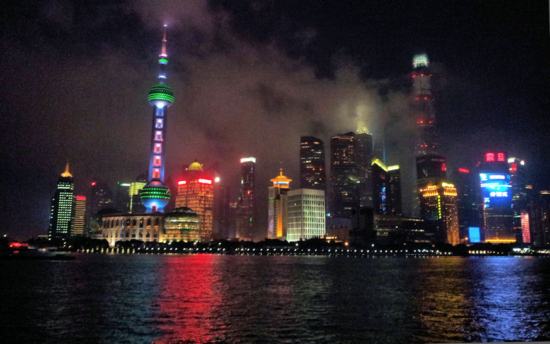Shanghai lockdown severely impacting the region’s tyre industry
 The tyre industry in Shanghai – population 26 million – and the surrounding area has been brought to a standstill (Photo: Stephen Goodchild / Tyrepress)
The tyre industry in Shanghai – population 26 million – and the surrounding area has been brought to a standstill (Photo: Stephen Goodchild / Tyrepress)
Since March 2022, China’s government has imposed strict lockdown policies on several cities in response to the rapid spread of COVID-19. Shanghai, the economic centre of China, is one of the core lockdown areas. According to information available to Tyrepress, it appears the entire industry is feeling the restrictions hitting production, logistics and retail in Shanghai and surrounding cities.
A large number of tyre manufacturers are located in and around Shanghai. A well-known Chinese financial media publication reported on 15 April that Michelin had shut down its Shanghai factory. This follows other measures Michelin implemented towards the end of March; we’ve been told that to avoid the effects of COVID-19, the tyre maker adjusted the logistics strategy of its warehouses in China. This includes the temporary closure of several Michelin warehouses in Shanghai.
Another tyre company affected by the lockdown measures is Double Coin. This Shanghai-based state-owned tyre maker has several plants in cities not far from Shanghai. One of the factories in Wuhu City, Anhui Province adopted short-term closed-loop management from 17 to 22 April to conform with the local government’s epidemic prevention policy. A prerequisite for keeping the factory operating was that workers should live at the premises and not be permitted to leave. According to a person familiar with the matter, Double Coin’s Wuhu factory experienced insufficient raw material supply and poor logistics during the closed-loop management period. In response to the above difficulties, Double Coin adjusted the factory’s production plan.
Tyre dealers suffering too
In addition to manufacturers, tyre dealers have also been suffering in Shanghai during the lockdown. A senior manager of a major tyre dealer in Shanghai told Tyrepress that his company has been closed for more than 40 days and sold about 30,000 fewer tyres than at the same time last year. He said: “Tyre distribution is a profession that cannot be worked from home and relies heavily on logistics and transportation. Shanghai has now suspended logistics in the entire region, and we can’t even deliver a single tyre to customers.”
Along with the decline in operating income caused by this drop in tyre sales, company shutdowns have left tyre dealers facing cash flow problems. It is reported that Shanghai tyre dealers’ stocks after Chinese New Year in 2022 matched those in previous years. However, the sudden lockdown imposed by the Shanghai government has left a large inventory of tyres piling up in warehouses. Meanwhile, expenses such as employee salaries and warehouse rent remain as high as ever despite companies being required to suspend operations. The backlog of inventory, reduction of sales and the maintenance of expenditure have put substantial financial pressure on Shanghai’s tyre dealers.
Tyre makers and dealers have the scale and capital to survive the lockdown in Shanghai. In contrast, tyre retail stores and auto repair shops, which are downstream of the entire industry, seem to be in a more challenging situation. According to the epidemic prevention requirements in Shanghai, a large number of local tyre retail stores cannot operate. Some auto repair shops in areas with no confirmed cases of COVID-19 have been allowed to operate but have struggled. A repair shop owner commented to us that the Shanghai government encourages people in “these areas to go out less frequently, thereby reducing the use of cars and the consumption of tyres.” He added: “It’s been a whole month, and there are at most two cars coming to the store every day, either for tyre repair or inflation, and none of them has changed tyres.”
Air of pessimism
In general, the lockdown in Shanghai has had a severe impact on the region’s entire tyre industry. On the one hand, logistics disruption has prevented tyre companies from obtaining the raw materials needed for production. Finished tyres produced cannot be sold through normal distribution channels. On the other hand, the lockdown policy has also isolated many tyre employees at home, unable to carry out normal production and sales activities.
An air of pessimism pervades the entire tyre industry in Shanghai at present. A tyre shop owner told us: “If the current control measures continue, I may be out of business in two months.”





Comments